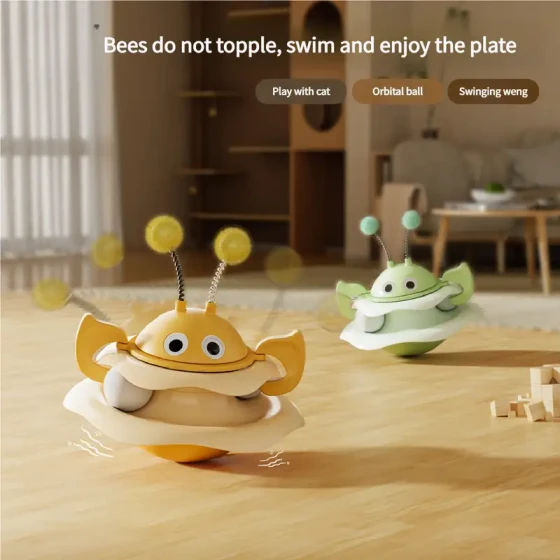Can Cats Eat Avocado_Safety Guide for Pets Eating Avocado
For many cat lovers, sharing food with their "masters" at home is a pleasure. Avocado, as a highly praised "superfood" in recent years, has its nutritional value deeply recognized. So, the question "Can cats eat avocado?" naturally arises in many cat owners' minds. Simply put, although a small amount of avocado pulp is not as toxic to most cats as it is fatal to birds and other animals, due to the presence of potential toxins and high-fat characteristics, as well as physical dangers from the pit and skin, veterinarians generally recommend avoiding feeding avocado to cats to ensure their health and safety.

So why does avocado pose risks to cats? It involves a substance called "Persin."
Hidden Risks: Persin Toxin and High Fat Content
Avocado, a fruit native to Central America, is known in the human diet for its rich vitamins, healthy fats, and dietary fiber. However, for our feline friends, the situation is more complex. All parts of the avocado plant, including leaves, bark, skin, and pulp, contain a natural fungal toxin called Persin.
Different animals have different sensitivities to Persin. For birds, Persin is highly toxic; even small amounts can cause respiratory difficulties, heart tissue damage, or death, making it essentially "arsenic" for birds. Cattle, sheep, rabbits, and other animals may also show poisoning symptoms after ingestion.
Fortunately, for pets such as cats and dogs, Persin's toxicity is relatively low. This means if a cat accidentally licks or eats a small piece of pure avocado pulp, it usually does not immediately cause life-threatening severe poisoning. However, "lower toxicity" does not mean "completely non-toxic." Small amounts of Persin may still irritate a cat's digestive tract and cause vomiting, diarrhea, and loss of appetite. Although some suggest Persin might cause heart damage, this is uncommon in cats and dogs, with the main risk focused on digestive system reactions.
Besides Persin, avocado's high-fat content is also an important consideration. As carnivores, cats need fats, but their digestive systems have limited ability to process large amounts of high-fat food. Excessive avocado intake may cause pancreatitis, a painful and potentially life-threatening condition characterized by intense abdominal pain, vomiting, and lethargy. Especially for cats with sensitive stomachs or a history of pancreatitis, avocado is a "no-go zone."
Invisible Traps: Physical Threats from the Pit and Skin
In addition to chemical risks, avocado's physical form also poses dangers to cats.
- Pit: The avocado pit is large and round. Curious cats may try to play with or chew on it. Accidentally swallowing the pit is very dangerous as it not only poses a choking hazard but can also get stuck in the esophagus, stomach, or intestines, causing intestinal obstruction. An obstruction usually requires surgical removal, which causes significant pain and risk for the cat.
- Skin and Leaves: The avocado skin is tough, and cats’ digestive systems cannot digest it well, possibly leading to indigestion. More importantly, the Persin concentration in the skin and leaves is much higher than in the pulp, with greater toxicity.
What About Avocado Ingredients in Cat Food?
Some cat food formulas contain words like "avocado" or "avocado extract," which confuses many owners: if avocado poses risks to cats, why is it in cat food?
The key is "extract." Reputable pet food manufacturers typically use specially processed avocado oil extracts that contain no or only trace amounts of Persin during production. These extracts are added to cat food mainly to utilize the beneficial unsaturated fatty acids in avocado that promote skin and coat health. Therefore, cat food containing avocado ingredients is generally safe, but this does not mean whole avocado is harmless to cats.
What To Do If My Cat Accidentally Ate Avocado?
If you find your cat has accidentally eaten avocado, especially the skin, pit, or a large amount of pulp, stay calm and immediately contact your veterinarian or pet hospital. Even if the cat currently shows no symptoms, professional advice is recommended.
Watch for the following symptoms in your cat:
- Vomiting
- Diarrhea
- Loss of appetite
- Lethargy, listlessness
- Abdominal discomfort or pain
- Breathing changes (such as difficulty or rapid breathing)
Provide clear information on which part of the avocado was eaten, how much, and when symptoms appeared, as this is crucial for the vet’s diagnosis and treatment. Depending on the situation, the vet may suggest observation, induced vomiting (under professional guidance), or other supportive treatments.
How to Prevent Cats From Accessing Avocado?
Prevention is better than cure. To avoid potential risks, the simplest and most effective method is not to feed avocado to your cat and to properly store avocados and related waste.
- Keep ripe or unripe avocados out of cats’ reach, such as in high cabinets or drawers.
- When handling avocado, immediately throw away the skin and pit into a covered trash can to ensure cats cannot access them.
Choosing More Suitable Treats for Cats
Cats are obligate carnivores, and their main nutritional sources should be high-quality animal proteins and fats. Although some cats may show interest in human food, many foods harmless to us can be toxic to them.
If you want to give your cat some treats as a supplement to their daily diet, you may choose healthy snacks specially designed for cats or small amounts of cooked chicken, fish (boneless and without seasoning), etc. Some vets consider small amounts of apple (without core or seeds), blueberries, and seedless watermelon occasionally safe, but quantity control is necessary since fruit sugars are not beneficial for cats’ health.
Frequently Asked Questions
- Is the avocado pit the most dangerous part? Yes, the pit not only contains a higher concentration of Persin toxin but its size and shape also pose serious choking and intestinal obstruction hazards for cats.
- Why is avocado used in some cat foods? Cat food usually contains specially processed avocado oil extracts that contain no or trace amounts of Persin toxin, mainly to provide fatty acids beneficial for skin and coat. This is different from feeding whole avocado pulp, skin, or pit directly to cats.
- My cat accidentally licked some avocado pulp, is it serious? Generally not a big problem. The Persin content in small amounts of pure pulp is low and unlikely to cause severe poisoning. However, closely watch your cat for several hours to a day for vomiting, diarrhea, or other symptoms, and consult a vet promptly if issues arise.
- Can guacamole be fed to cats? Absolutely not! Guacamole often contains onions, garlic, and other ingredients highly toxic to cats. Even without considering the avocado risk, these ingredients alone can cause serious harm or be life-threatening.
Summary
In summary, although small amounts of avocado pulp are less toxic to cats than to some other animals, to guard against potential Persin toxin risks, digestive issues from high fat content, and physical dangers from the pit and skin, the safest approach is to completely avoid feeding avocado and related products (like guacamole) to cats. As the saying goes, "Illness enters through the mouth." Providing your cat with a safe, healthy diet tailored to their physiological needs is the responsibility of any conscientious owner. If you have any doubts about your cat’s diet, consulting a professional veterinarian is always the best choice.
References
- Nationwide Pet Insurance article on avocado toxicity
- PetMD article on whether cats can eat avocado
- Tencent News article on fruits cats cannot eat
- Pawlicy Advisor article on whether cats can eat avocado
- Petco article on whether cats can eat avocado
- Netease News article on foods cats cannot eat
- Taiwan Veterinary Internal Medicine Association article on pet diet
- Chewy.com article on whether cats can eat avocado
- Pawlicy Advisor article on whether cats can eat avocado
- Petco article on whether cats can eat avocado
- Netease News article on foods cats cannot eat
- Mewcare article on fruits cats can and cannot eat
- Netease News article on foods cats cannot eat
- Taiwan Veterinary Internal Medicine Association article on pet diet
- Can Your Dog or Cat Eat Avocado? article
- What Vegetables and Fruits Can Cats Eat? article
- VIN report on household toxins
- Wikipedia entry for Persin
- Netease News article on whether cats can eat strawberries
- Article on foods cats cannot eat
- Pendle Hill Vets article on new kittens and daily care
- City University Vet tips: 4 fruits toxic to pets article
- Weichong Pet Navigation article on avocado cat food
- VETgirl veterinarian continuing education blog on diabetes and dog/cat diet
- Kingston Vets article on poisoning advice
- PetPetin article on changing cat food
- Netease News article on whether dogs can eat avocado
- Foodism article: 7 foods unsafe for pets
- University Animal Clinic article on common household toxins
- Cat Friendly Clinic article on changing cat food
- MaoAulife article on what dogs and cats cannot eat
- Yangcheng Newspaper article on cat food taboos
- Safe fruits and vegetables for puppies article
-560x560.webp)



-560x560.webp)
